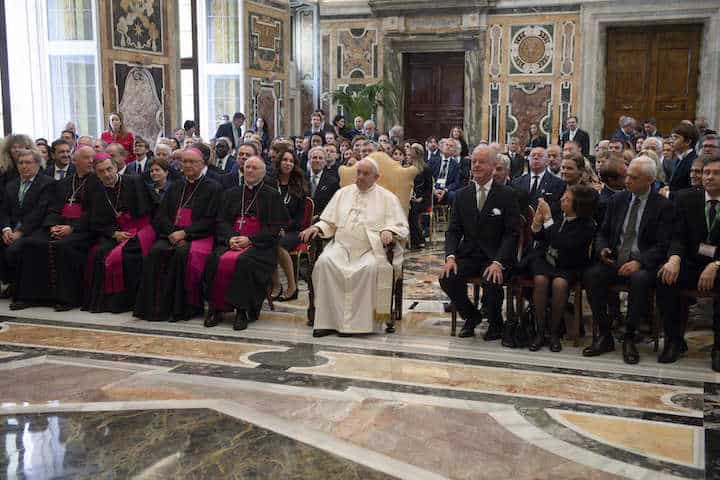A Summary of
Pope Francis’ Address to CAPP

Pope Francis addresses CAPP membership at the 2022 International Conference
I thank all of you for the work you do. I consider your contribution with regard to the social doctrine of the Church to be very important, first of all at the level of its reception, because you contribute to making it known and understood; but I would also say at the level of deepening it, because you read it “from within” the complex economic and social world, and therefore you can continually compare that doctrine with reality, a reality that is always in motion, that changes continually.
The theme of your conference…brings to mind Saint Paul VI’s Populorum Progressio, where he states: “Development … cannot be restricted to economic growth alone. To be authentic, it must be well-rounded; it must foster the development of each man and of the whole man”. (Populorum Progressio, 14)
And so, here is our task, particularly yours as lay faithful: to “leaven” economic reality in an ethical sense. And you try to do this, starting from the vision of the Gospel. Because everything stems from how you look at reality.
To look down on another person, is legitimate only in one situation: to help him or her to get up. This is the only moment when it is legitimate to look down from above.
Poverty is not fought with welfarism, no, in this way we “anaesthetize” it but we do not fight it. As I have already said in Laudato si, “Helping the poor financially must always be a provisional solution in the face of pressing needs. The broader objective should always be to allow them a dignified life through work”. (Laudato Si, 128) The doorway is work: the door to the dignity of a man is work.
Dear friends, thank you for coming, and especially for the commitment that each of you offers, where you live and work, to promote inclusive growth and, more generally, knowledge of the social doctrine of the Church. From my heart I bless all of you and your families. And please, do not forget to pray for me. Thank you.





